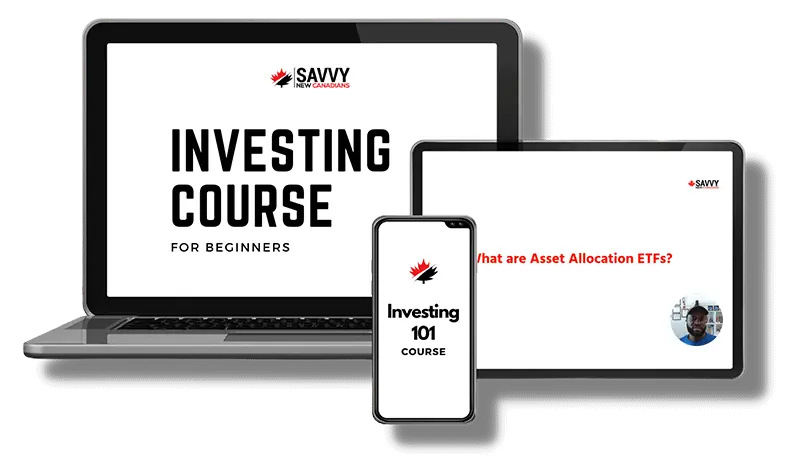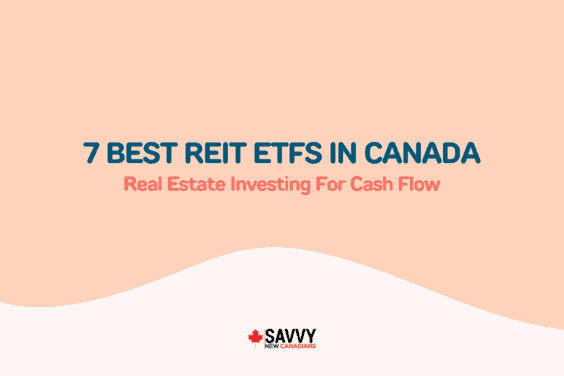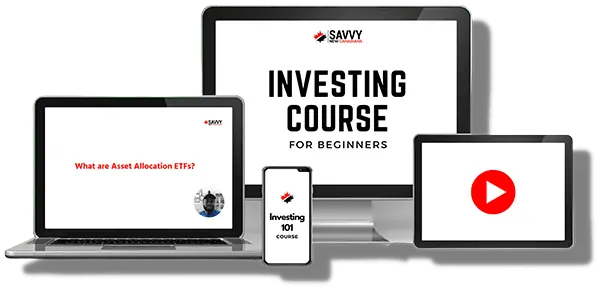This article is sponsored by Fidelity Investments Canada ULC. All opinions are mine.
The First Home Savings Account (FHSA) is a registered plan that is intended to help eligible Canadians save for their first home purchase.
This tax-free investment account combines elements of both the Registered Retirement Savings Plan (RRSP) and the Tax-Free Savings Account (TFSA). Contributions are tax-deductible like an RRSP, and investment growth and withdrawals are tax-free, like the TFSA.
The flexible FHSA is potentially a game-changer for eligible Canadians looking to buy a home in the future. In this article, I discuss what you ought to know about the FHSA, including investment options and how to get started.
Features of the FHSA
1. Make Tax-Deductible Contributions
You can contribute up to $8,000 annually, and up to $40,000 over a lifetime.
The amount contributed can be deducted from your taxable income, lowering your taxable burden. You can also choose to claim deductions in later years when you are in a higher tax bracket, to maximize tax savings.
2. Enjoy Tax-Free Earnings and Withdrawals
FHSA funds can be withdrawn tax-free for a qualifying home purchase.
Investment growth on the account is also non-taxable, and there are no withdrawal limits.
3. Carry Forward Contributions
You can carry forward up to $8,000 in unused contribution room to future years. For example, if you contribute $4,000 in 2023, the remaining $4,000 in unused contributions increases your maximum contribution limit in 2024 to $12,000 (i.e. $4,000 + $8,000).
4. Hold Various Qualified Investments
Like an RRSP or TFSA, the FHSA allows you to hold various investments including mutual funds, Exchange-Traded Funds, individual stocks, cash, bonds and Guaranteed Investment Certificates.
You can open a managed or self-directed FHSA at financial institutions offering them.
5. Open Multiple FHSAs
Canadians can have more than one FHSA (like RRSPs and TFSAs). They can also transfer assets between FHSAs accounts, without triggering taxes.
Note that your maximum contribution to multiple FHSAs is subject to the same annual and lifetime limits.
6. Combine The FHSA With Home Buyers’ Plan
The Home Buyers’ Plan (HBP) allows you to withdraw up to $35,000 from your RRSP for a qualifying home purchase. Any such withdrawal must be re-contributed to your RRSP over 15 years.
When buying a home, you can consider using funds from your FHSA and HBP, increasing your down payment amount.
7. Non-Taxable FHSA To RRSP Transfers
If you do not use up your FHSA to buy a home, you can transfer the money to an RRSP or RRIF on a tax-free basis.
FHSA to RRSP transfers do not affect your RRSP contribution room.
Limitations of the FHSA
1. Exceed The 15-Year Lifespan
An FHSA can stay open for a maximum of 15 years, or until the end of the year the accountholder turns 71, whichever comes first.
Upon closing the account, the accountholder can withdraw the funds and pay taxes, or transfer the funds tax-free to an RRSP or RRIF.
2. Over-Contribute To Your FHSA
Over-contributing to your FHSA will result in a 1% monthly penalty on the excess contribution. This penalty tax only stops after you withdraw the excess contribution or accumulate additional contribution in the following year.
3. Buy a Non-Qualifying Home
Qualifying homes include single-family and semi-detached homes, townhouses, condos, apartment in duplexes, triplexes, fourplexes, or apartment buildings, mobile homes, and a share in a co-operative housing corporation that entitles you to own and gives you an equity interest in a housing unit.
A home arrangement that gives you a share that only provides you with a right to tenancy in a housing unit does not qualify.
4. Claim a Deduction on Spousal Contributions
While you can give your spouse money to contribute to their FHSA, you can’t claim a deduction on the amount. Conversely, Spousal RRSP attribution rules do not apply, and income earned in the account are not taxable to you.
5. Deduct Contributions in First 60 Days on Last Year’s Taxes
For RRSPs, your contributions in the first 60 days of the year can be claimed as a deduction on your tax return for the previous year. This does not apply to FHSAs.
The FHSA has a January to December calendar year. For example, in 2023, you can deduct contributions made until December 31, 2023, on your 2023 tax return. Contributions in January to February 2024 can only be deducted on your income tax return for 2024 or later years.
Ready to open an account?
The FHSA is now available through Fidelity. Speak with your financial advisor about opening an FHSA and for more information on the types of investments you can hold within it.
Visit Fidelity.ca to learn more.
Commissions, trailing commissions, management fees, brokerage fees and expenses may be associated with investments in mutual funds and ETFs. Please read the mutual fund or ETF’s prospectus, which contains detailed investment information, before investing. Mutual funds and ETFs are not guaranteed. Their values change frequently, and investors may experience a gain or a loss. Past performance may not be repeated.
The statements contained herein are based on information believed to be reliable and are provided for information purposes only. Where such information is based in whole or in part on information provided by third parties, we cannot guarantee that it is accurate, complete or current at all times. It does not provide investment, tax or legal advice, and is not an offer or solicitation to buy. Graphs and charts are used for illustrative purposes only and do not reflect future values or returns on investment of any fund or portfolio. Particular investment strategies should be evaluated according to an investor’s investment objectives and tolerance for risk. Fidelity Investments Canada ULC and its affiliates and related entities are not liable for any errors or omissions in the information or for any loss or damage suffered.
Portions © 2023 Fidelity Investments Canada ULC. All rights reserved. Fidelity Investments is a registered trademark of Fidelity Investments Canada ULC.







Hello,
My mother subscribes to you and enjoys your articles as do I when she shares them with me.
I just personally opened a FHSA accountant with TD bank and I was told you can NOT carry forward contribution room in your FHSA. What is your source on this and can you confirm accuracy.
Thanks
@Elliot: Glad to hear your mum shares our articles with you! Yes, you can carryforward unused FHSA contribution to future years. Here’s the government’s website on that: https://www.canada.ca/en/revenue-agency/services/tax/individuals/topics/first-home-savings-account/contributing-your-fhsa.html. Cheers.